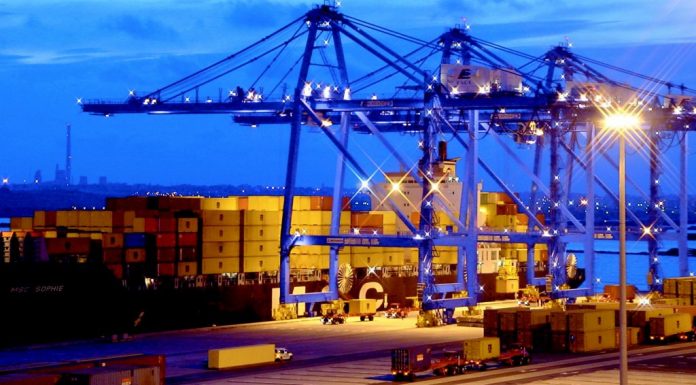BEIJING, Pakistan could overtake India in trade with China in just eight years, even though its trade volume with China was only one-fifth of India’s in 2020, a Pakistan diplomat said.
In 2020, bilateral trade between China and Pakistan stood at $17.49 billion while between China and India it was $77.7 billion.
“India has a population five to six times larger than that of Pakistan, so I hope that it will take eight to ten years to overtake them,” Badar U Zaman, commercial counselor of the Embassy of Pakistan in Beijing, told the Global Times at the 2021 China-Pakistan Trade Forum.
Although Zaman did not provide more details to support his projections, analysts said the two country’s iron-clad relationship and the substantial progress already made in construction of the multi-billion-dollar China Pakistan Economic Corridor (CPEC) projects could provide economic propulsion to boost bilateral trade.
A Chinese scholar studying China-Pakistan relations pointed out that there are obstacles for Pakistan in realizing this ambitious trade target. But such a scenario is not entirely impossible.
“If Pakistan hopes to overtake India in trade with China in eight to ten years, Pakistan has to increase its purchasing power and improve the standard for export goods to meet international standards,” said Zhou Rong, a senior researcher at the Chongyang Institute for Financial Studies at Renmin University of China.
India has a large market, given its population of nearly 1.4 billion, while Pakistan has a population of 220 million, Zhou noted, adding that Pakistan needs time to build and cultivate its own purchasing power.
India also has a large amount of raw materials that can be exported to China while Pakistan has less of such resources, so it might be tough for Pakistan to overtake India in eight to ten years unless the bilateral trade relationship between China and India continues worsening, said Zhou.
However, there are meaningful changes taking place. Amid frayed bilateral ties following a deadly border clash as well as the Indian government’s ban on Chinese investment into the country, bilateral trade between China and India stood at $77.7 billion in 2020, down from $85.5 billion the previous year.
At the same time, the relationship between China and Pakistan has become stronger and investment has been increasing. There has been a 34 percent increase in exports from Pakistan to China year-to-date, thanks to the bilateral free trade agreement, according to Zaman.
Experts also noted that Pakistan has its own advantage in that the CPEC has provided improved infrastructure for the country, and paved the way for its industrialization process. That means Pakistan will have more demand for imports and more goods to export to China in the coming decade.
The construction of a string of industrial parks will also help Pakistan to improve the quality of its exports, experts noted.
Some of the potential items Pakistan could export to China include copper, for which there is great demand in China, as well as cotton, sugar and textile products, according to Zaman and Zhou.
In 2020, the total trade between China and Pakistan totaled $17.49 billion, a year-on-year decrease of 2.7 percent, with imports from Pakistan reaching $2.12 billion, an increase of 17.5 percent compared with the previous year, according to data from the Ministry of Commerce.
China has been Pakistan’s biggest trade partner for six consecutive years since the 2015 fiscal year. China is also Pakistan’s main source of imports and second-largest export destination, according to data from the Economic and Commercial Office of the Chinese Embassy in Pakistan.
The recent Dasu incident will not affect the trade between the two countries and China-Pakistan cooperation projects under the Belt and Road Initiative, Zaman said, emphasizing that Pakistan is giving maximum priority to the safety of Chinese nationals.
Follow the PNI Facebook page for the latest news and updates.









